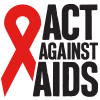All pregnant women should get tested for HIV.
What was the first day of the last period (menstrual cycle)?
First day of last period: December 01, 2016
Estimated due date will be:
- Second Trimester
- 19 Weeks Pregnant
First Trimester
The first trimester is the optimal time to test for HIV. CDC, along with American College of Obstetricians and Gynecologists (ACOG) and American College of Nurse-Midwives (ACNM), recommends routine HIV testing as part of first-trimester prenatal screening tests for all pregnant women using an opt-out practice. Ideally, women should be screened for HIV at their initial prenatal care visit or as early in pregnancy as possible, using a combination HIV antigen and antibody assay.
Gestational Information (fetus length and weight):
View more gestational information and online resources.
Second Trimester
Clinicians should perform the HIV test as soon as possible when providing prenatal care, even if the first visit is at 13 weeks or later. Women who decline HIV screening early in prenatal care should be encouraged to be screened at subsequent visits. Without treatment, babies born to mothers with HIV have a 22% chance of becoming infected with HIV.
Gestational Information (fetus length and weight):
View more gestational information and online resources.
Third Trimester
Although HIV treatment is most effective when it is initiated early in pregnancy, there are still benefits to the mother and her baby if diagnosed and treated later in pregnancy. CDC recommends repeat testing in the third trimester for women in areas with high HIV incidence or prevalence and for women who meet one or more of the following criteria:
- injection-drug users and their sex partners,
- women who exchange sex for money or drugs,
- women who are sex partners of HIV-infected persons, and
- women who have had a new or more than one sex partner during their pregnancy.
Any woman with an undocumented HIV status at the time of labor should be screened with an expedited HIV test unless she declines. Treatment to prevent perinatal transmission can be started if there is a positive result from an HIV test during the intrapartum period.
Gestational Information (fetus length and weight):
View more gestational information and online resources.
CDC recommends that all pregnant women be screened for HIV as early as possible during each pregnancy.
Prenatal HIV screening benefits mom and baby.

Women living with HIV who take antiretroviral medication during pregnancy and are virally suppressed can reduce the risk of transmission to 1% or less.
View Online Resources.


 SHARE
SHARE